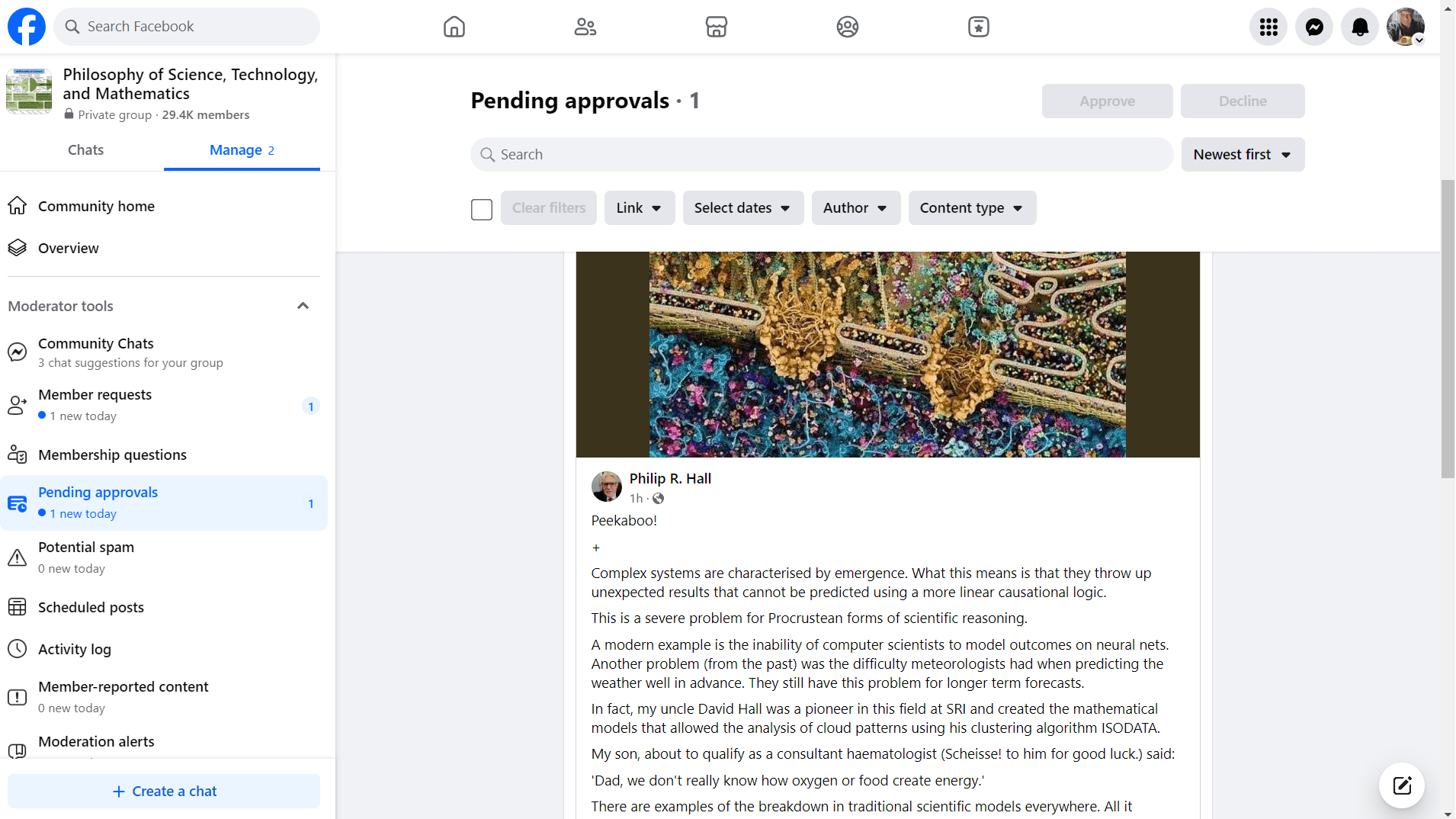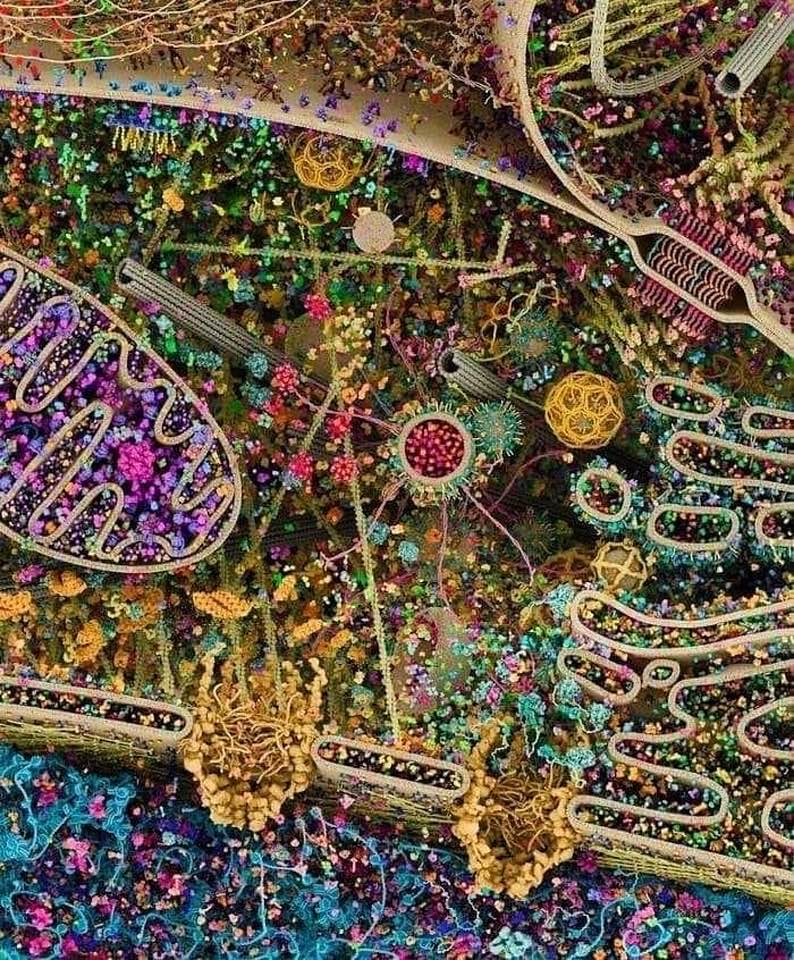Since I am suffering in the silence to my humanities-social science messaging, I will go to the message of the Philosophy of Science, from Philip R. Hall.
Phil Hall is Wissenshschaftlicher, and editor at arsnotoria.com
Peekaboo!
+
Complex systems are characterised by emergence. What this means is that they throw up unexpected results that cannot be predicted using a more linear causational logic.
This is a severe problem for Procrustean forms of scientific reasoning.
A modern example is the inability of computer scientists to model outcomes on neural nets. Another problem (from the past) was the difficulty meteorologists had when predicting the weather well in advance. They still have this problem for longer term forecasts.
In fact, my uncle David Hall was a pioneer in this field at SRI and created the mathematical models that allowed the analysis of cloud patterns using his clustering algorithm ISODATA.
My son, about to qualify as a consultant haematologist (Scheisse! to him for good luck.) said:
‘Dad, we don’t really know how oxygen or food create energy.’
There are examples of the breakdown in traditional scientific models everywhere. All it requires for reasoning to break down is an increase in the level of complexity.
One of my students headed up a French research team to discover the cure for AIDS. He said that he was annoyed with people who were impatient and who expected a cure for AIDS. He was annoyed, he said, because it was so damn difficult and complicated to understand clearly what was happening.
He explained it to me. He said.
‘Every description of what happens, especially with the human cell and its interaction with viruses, as accurate as it can try to be, is still inevitably inadequate. Any description of real phenomena is only a description.’
Descriptions do not encapsulate the reality of the complexity of phenomenon.
To which I add: all science is caricature.
The Egyptian priesthood predicting the Nile flood using the stars impressed everyone no end, so they started inventing gods and ways of life to explain the ‘why’ of things. This is true also today. A Zoologist with chutzpah will opine on morality and tell people how to behave.
When complexity gets to be too much we must rely on models and representations of the world. But the model is not the reality. This picture of a hat is not actually a hat. The model is merely a representation of something far more complex and intricate.
The complexity of climate change is cosmic! In addition to the involvement of humans, the interaction of biological systems, chemistry and geology, there is the influence of Milankovitch cycles and there are always the unknown unknowns. The upshot is that climate change models will fail to predict accurately certain accelerated trends or hiatuses.
The the real two body problem is the dichotomy between representation and reality. The universe is not information, it is the universe. The universe is the egg and information or knowledge is our understanding of it.
The hubris lies in this. That a motile particle of that universe can claim to understand and possesses the simple formulae that will generate impossibly complex physical systems without being able to describe accurately the complex systems themselves.
These complex systems have evolved over billions of years, and interact from unimaginably vast scales down to the miniscule.
When a motile dot is incapable of drawing a map of the UK from memory, or reciting a long poem by heart, it seems far fetched to imagine that it therefore comprehends complexity.
And the culmination of science, it seems, is a childish game of peekaboo called quantum mechanics. The world disappears when you can’t see it and appears again when you do.
Peekaboo!.
Image credit: Transformation of the Cellular Landscape through a Eukaryotic Cell, by Evan Ingersoll Ingersoll Gael McGill ~ Digizyme’s Custom Maya Molecular Software
Featured Image:

Neville Buch
Latest posts by Neville Buch (see all)
- Dear grossly, ethically, corrupted - December 21, 2024
- Thoughts with a Professional History colleague on “Artificial Intelligence” - December 21, 2024
- Stephanie M. Lee on “AI by omission”, The Chronicle of Higher Education, Thursday, December 19, 2024 - December 20, 2024

